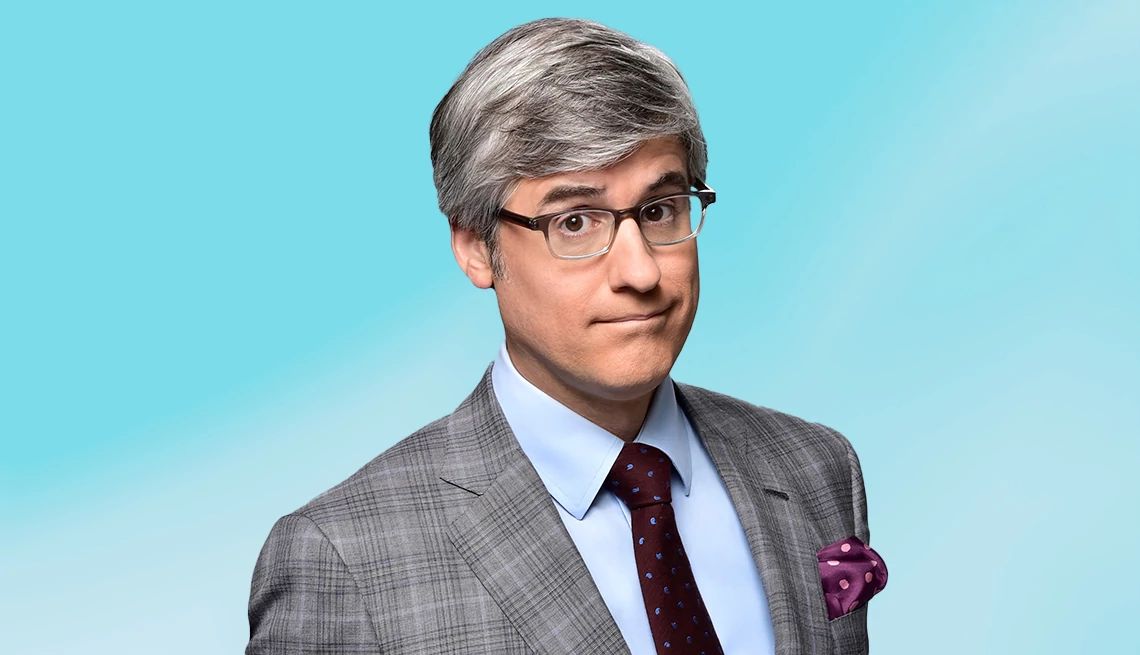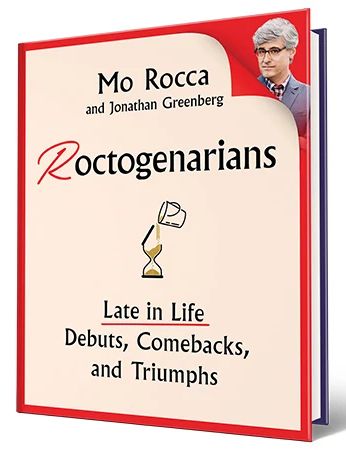AARP Hearing Center


Mo Rocca, 55, hopes to popularize a new term: In his new book, Roctogenarians: Late in Life Debuts, Comebacks, and Triumphs, the CBS Sunday Morning correspondent chronicles entertaining and unexpected stories of people who are rockin’ life in their 70s, 80s and beyond — selling out concert halls, attempting land-speed records and debuting as authors, for example. Rocca tells AARP how hearing these stories inspired him to step out of his own comfort zone, how he’s trying to make healthier dietary choices in his 50s, plus the food he introduced to Barbra Streisand.
This interview has been edited for length and clarity.
What lessons did you learn from the roctogenarians you interviewed?
They ignored the conventional wisdom that the third act in your life as a drama should be a period of winding down, a period of decline. I keep thinking if life is a three-act play, you don’t want the audience leaving at the second intermission, or the third act. You want to end with a bang. You want the critics to say, “Wow, what a great ending.” We’ve added all these years to life expectancy, so we’re figuring out what to do with those years. There’s a whole lot that you can do.


Who was one of your favorite people to talk to?
One of the patterns I noticed in a lot of these stories is people returning to first loves, but in a much clearer, simpler way — and in a freer way. It’s so inspiring. I love the story of Ruth Slenczynska, who I first profiled for CBS Sunday Morning, who was one of the great child prodigies at the piano. But she was terrorized by her father — the stage parent on steroids, a nightmare story. She had to quit eventually because it was too much torture. And this is a woman who played with Rachmaninoff, who subbed for him when she was a child at one concert. But finally, she learned to love playing for the sake of playing.
Did researching the book change your opinion on aging?
I think so. I prefer profiling older people because they’re more interesting to me, and I’m an old soul myself. Yet, in writing this book, I realized I too had fallen into this trap of feeling like opportunities had passed me by, and that life was a series of an increasing number of exit ramps that were closed off. And of course limits set in, primarily physical ones, but opportunities also open up. I think of my mother when she prunes the grapefruit tree that we planted together many years ago. You prune branches and then they come back even stronger — there are more shoots, sprouts. So, yes, it has made me rethink aging and become much more optimistic. The conventional wisdom had crept up on me, and I didn’t realize it.































.jpg?crop=true&anchor=13,195&q=80&color=ffffffff&u=lywnjt&w=2008&h=1154)





























You Might Also Like
Howie Mandel: ‘There Is a Light at the End of All These Tunnels’
Comedian talks mental health, ‘America’s Got Talent’ and joys of being a grandfather
June Squibb, 94, Nabs Her First Lead Movie Role in ‘Thelma’
The actress stars as Thelma Post, who sets out on a quest to get her money back from a scammer
Craig Morgan on Why He Reenlisted in the Army at Age 59
Country superstar talks military service, music career and big plans for turning 60
More Celebrity Interviews
Read exclusive Q&As with the biggest names in movies, music and television, best-selling authors and other high-profile personalities
More Members Only Access
Enjoy special content just for AARP members, including full-length films and books, AARP Smart Guides, celebrity Q&As, quizzes, tutorials and classes
Recommended for You